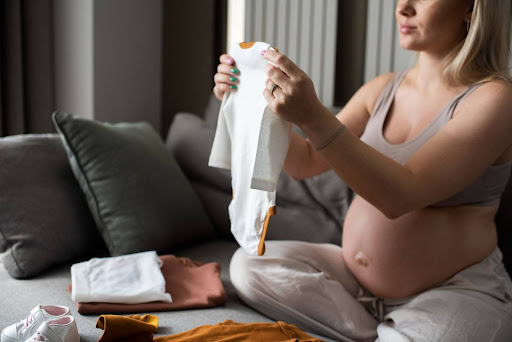Maintaining Hygiene During Pregnancy
As the body experiences these changes, maintaining cleanliness becomes essential to prevent bacterial and viral infections and ensure safety for both the mother and baby.
From effective hand hygiene to oral hygiene and food hygiene, a few simple hygiene habits can make a huge difference in keeping yourself clean and promoting a healthier pregnancy.
Whether it’s keeping germs at bay, preventing diseases and infection control, or adopting safe hygiene practices, this guide will help you navigate pregnancy with confidence and ease.
Let’s dive into the best hygiene tips every expecting mother should follow!
The importance of hygiene during pregnancy
Pregnant women become more vulnerable to infections due to weakened immune systems, making hygiene a top priority to prevent health complications. Here are some of the most common reasons behind maintaining hygiene during pregnancy:
1. Reduces risks of infections
Poor hygiene can lead to urinary tract infections (UTIs), yeast infections, and skin infections, which can affect both maternal and fetal health. Proper hygiene practices help reduce exposure to harmful bacteria and viruses.
2. Protects baby’s development
Certain infections during pregnancy, such as toxoplasmosis and listeriosis, can cross the placenta and harm the baby. Maintaining food safety, proper hand hygiene and a clean environment helps reduce these risks.
3. Prevents pregnancy-related skin issues
Hormonal changes during pregnancy cause increased sweating, acne, and skin irritation. Taking regular showers, wearing breathable fabrics, and using gentle skincare products help keep the skin fresh and healthy.
Staying clean and fresh boosts confidence, reduces discomfort, and promotes mental and physical well-being, making pregnancy a more pleasant experience.
Hygiene needs during pregnancy and post-childbirth
Maintaining personal hygiene during pregnancy is crucial. Reducing the risk of infections is essential, as they can potentially be transmitted to your unborn baby.
1. Handwashing & general cleanliness
- Wash hands frequently with antibacterial soap, liquid hand wash, and water, especially before meals and after using the bathroom.
- When in public, carry a dermatologically tested hand sanitizer for instant protection from germs, bacteria, and viruses.
2. Oral hygiene
- Pregnancy hormones can cause swollen, bleeding gums (pregnancy gingivitis), increasing the risk of infections.
- Brush twice daily with fluoride toothpaste, floss regularly, and schedule dental checkups to prevent gum disease.
3. Bathing & skincare
- Take daily showers and use an antibacterial body wash, which provides 99.9% protection against harmful germs, bacteria, and viruses. The wash also removes excess sweat while respecting the skin’s moisture barrier and leaves it feeling healthy and fresh.
- Apply moisturizer to combat pregnancy-related dry skin, irritation, and stretch marks.
4. Intimate hygiene
- Use mild, pH-balanced cleansers for the genital area to prevent infections.
- Wear breathable cotton underwear and change them daily to keep moisture levels in check.
- Avoid douching, as it can disturb the natural balance of vaginal flora.
5. Nails & hair hygiene
- Keep nails trimmed and clean to prevent bacterial buildup and infections.
- Wash hair regularly to manage increased oiliness caused by hormonal changes.
6. Breast hygiene
- Wash breast regularly with warm water and mild soap to remove sweat and prevent irritation.
- Avoid tight bras that can restrict blood flow and cause discomfort.
- Some women experience colostrum leakage (early milk) during pregnancy. Use breast pads inside bras to absorb moisture and prevent infections.
- Apply natural oils (coconut oil, olive oil) or nipple creams to keep the skin hydrated and prevent dryness or cracking.
- While breast tenderness is normal during pregnancy, check for unusual lumps or severe pain and consult a doctor if needed.
FAQs
How often should a pregnant woman bathe?
Although how often you choose to shower or bathe depends on personal preferences, for many people, two to three times a week is enough to maintain hygiene during pregnancy.
Can poor hygiene during pregnancy affect the baby?
Yes, poor hygiene can have an adverse impact on your pregnancy. It may increase the risk of infection in the mother and may spread to the unborn child, leading to complications such as low birth weight babies and preterm delivery.
What hygiene precautions should I take when using public restrooms?
Maintaining personal hygiene in public places such as restrooms includes always carrying hand sanitizer or disinfectant wipes, using toilet seat covers, avoiding touching surfaces directly, and washing hands thoroughly to prevent bacterial infections.
